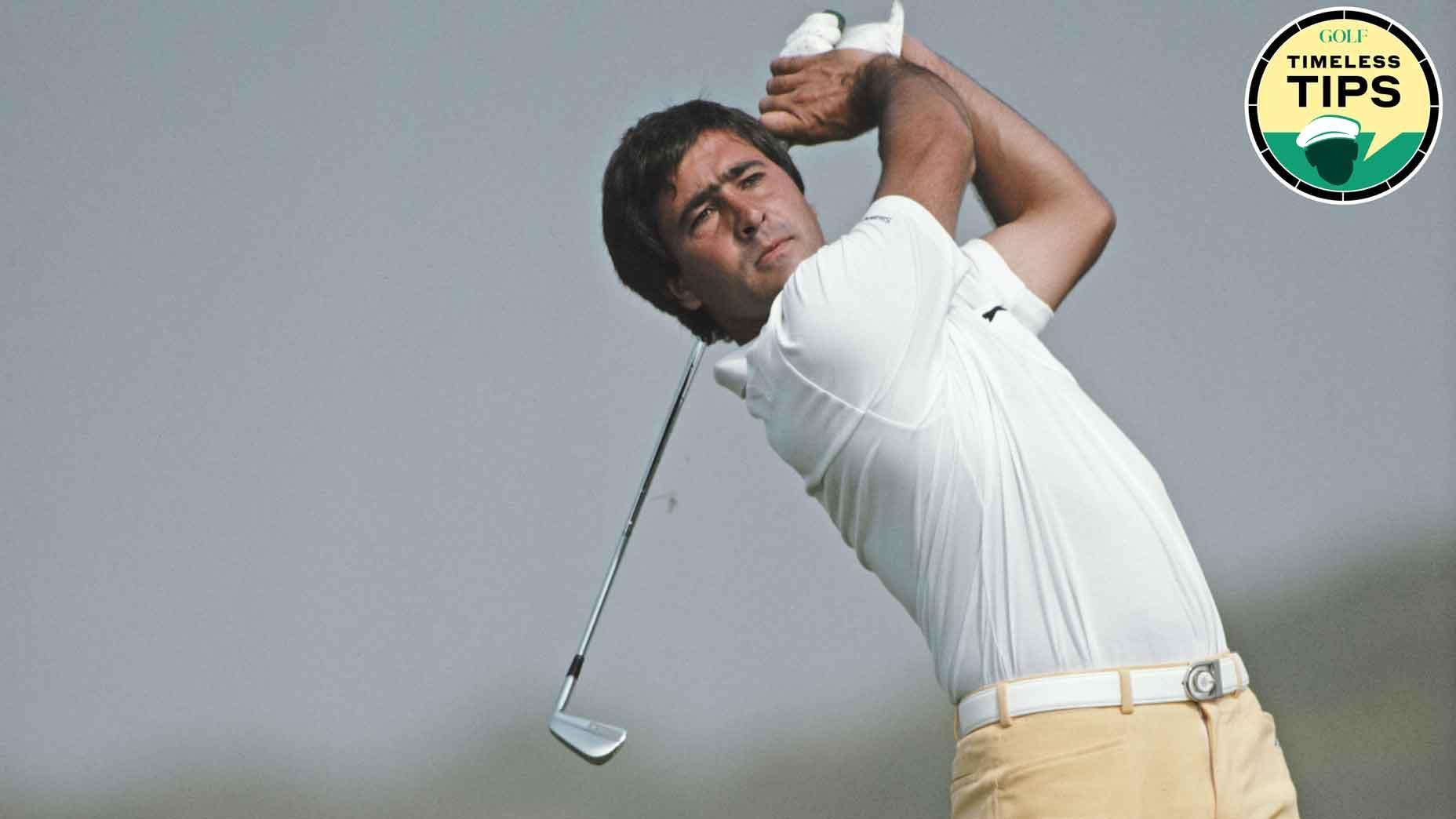Seve Ballesteros, a prominent figure in the realm of golf, has made a lasting impact not only through his extraordinary accomplishments on the course but also through his groundbreaking instructional techniques. His expertise in ball striking and trajectory manipulation has set new benchmarks in the sport, providing invaluable insights for both beginners and experienced golfers. This article delves into Ballesteros’ strategic course management and distinctive methods, aiming to clarify the core principles that form the foundation of his teaching philosophy. By thoroughly exploring his techniques, we aspire to enhance our comprehension of effective golf instruction and motivate a new generation of golfers to appreciate the artistry and complexities that characterize this enduring sport.
Unpacking Seve Ballesteros’ Ball Striking Techniques
Seve Ballesteros transformed ball striking with methods that highlighted both innovation and accuracy. One of his most remarkable skills was the ability to adjust the clubface at impact, granting him remarkable control over the ball’s trajectory and spin. His approach to stroke mechanics is characterized by a unique blend of artistry and precision, enabling him to manipulate ball trajectory and achieve remarkable shot execution. By focusing on the following key aspects, golfers can incorporate elements of Ballesteros’ techniques:
- Open Clubface Position: Ballesteros frequently positioned his clubface open at address to achieve a higher trajectory on shorter shots, allowing the ball to land softly on the greens.
- Body Rotation: He employed a complete body rotation paired with a relaxed grip, enhancing the fluidity of his swing, which resulted in improved distance and precision.
- Creative Shot Selection: Rather than strictly adhering to traditional shots, he embraced various stances and angles to tackle challenging lies, often leading to remarkable results.
Another crucial element of Ballesteros’ striking technique was his adept use of hands and wrists. His nuanced wrist movements facilitated exceptional timing and feel, essential for executing delicate shots around the greens. To implement Ballesteros’ grip methodology effectively, consider the following key aspects:
| Technique | Description |
|---|---|
| Wrist Control | Starting the swing with controlled wrist action allows for increased power without compromising accuracy. |
| Release at Impact | A natural wrist release at impact generates both speed and spin, vital for ball control. |
The strategic application of these techniques is evident in Ballesteros’ ability to effectively read the course. His innovative approach to course management combined ball striking with tactical decision-making. He evaluated each hole by considering:
- Wind Conditions: Recognizing how wind influences ball flight enabled Ballesteros to make informed decisions regarding club selection and shot execution.
- Topography Awareness: His acute awareness of slopes and undulations affected not only his putting strategy but also his approach shots to the greens.
- Risk vs. Reward Analysis: Ballesteros often assessed the risks associated with aggressive shots, opting for conservative plays when necessary to maintain a competitive advantage.
Trajectory Control Strategies Inspired by Seve Ballesteros
Seve Ballesteros’ exceptional ability to control shot trajectories distinguished him from his peers and continues to offer valuable lessons for golfers today. His skill in manipulating ball flight arose from a blend of keen observation and an intrinsic understanding of the physics behind each swing. To replicate Ballesteros’ trajectory control, players should consider the following strategies:
- Ball Positioning: Adjusting the ball’s position relative to the stance allows for varied launch angles. Placing the ball forward can achieve higher trajectories, while positioning it back promotes a lower flight.
- Club Selection: Understanding how different clubs interact with the ball can significantly influence trajectory. Choosing a wedge for a high, soft landing or a 4-iron for a punch shot is essential for effective course management.
- Angle of attack: The manner in which the clubface meets the ball can affect the shot’s height and spin. A steeper angle typically results in a higher trajectory, while a shallower approach yields a lower, more penetrating flight.
Furthermore, mastering the art of trajectory control requires an understanding of how to dynamically adjust these factors to suit the course conditions. Utilizing various shot types, such as the low punch or high lob, can enhance a player’s versatility on the course. Below is a summarized table of key shot types with their respective trajectory characteristics:
| Shot Type | Trajectory | Ideal Conditions |
|---|---|---|
| Low Punch | Low and penetrating | Windy conditions |
| High Lob | High and soft | Over hazards or obstacles |
| Draw | Curved from right to left | Left-to-right wind |
| Fade | Curved from left to right | Right-to-left wind |
Through diligent practice and by adopting Seve’s innovative methodologies, golfers can significantly enhance their shot-making skills. Embracing these principles not only allows for improved trajectory control but ultimately also leads to a more creative game on the links.
Ballesteros also excelled in visualizing his shots prior to execution, often considering the entire layout of the hole. By segmenting the course, he would devise specific strategies based on the terrain and wind conditions. To incorporate this into practice, golfers should:
- Practice Visualization: Spend time analyzing each hole and mentally rehearsing different shot trajectories before stepping up to the tee.
- Evaluate Wind Conditions: Observe how wind affects ball flight on each hole. Adjusting shot selection and execution can significantly alter outcomes based on prevailing conditions.
- Adapt Approach: Flexibility in strategy is crucial; Ballesteros frequently modified his plan mid-round based on new details or changing course characteristics.
Course Management Skills: Learning from Ballesteros’ Strategic Play
Seve Ballesteros was not only celebrated for his exceptional ball-striking ability but also for his outstanding course management skills. He possessed an innate intuition for navigating the challenges of a golf course, often employing unconventional strategies that would perplex even seasoned professionals. Rather than solely relying on his technical skills, Ballesteros excelled at reading the course and adapting his strategy based on the prevailing conditions, a skill set worth emulating by both amateurs and professionals alike.
Key principles of Ballesteros’ course management included:
- Understanding Wind Conditions: Seve had an extraordinary ability to predict how wind could influence ball flight, enabling him to select the appropriate club and shot shape.
- Strategic Shot Selection: He frequently enough opted for riskier shots when he had a strong feel for the green conditions, yet he was also mindful of playing conservatively when necessary.
- Visualizing the Course: Ballesteros was known for his mental imagery techniques, visualizing each shot and its trajectory before execution, which enhanced his focus and precision.
By studying and implementing elements of Ballesteros’ strategic play, golfers can enhance their awareness of course dynamics, ultimately translating into improved performance on the course. Emulating his innovative approach to course management serves as a valuable instructional tool, allowing golfers of all skill levels to elevate their game.
Short Game Innovations: Insights from Ballesteros’ Approach
Seve Ballesteros transformed the short game with his imaginative and intricate techniques that frequently enough defied conventional golf wisdom. His ability to manipulate the ball’s spin and trajectory enabled him to navigate the most challenging greenside situations with apparent ease. To emulate Ballesteros’ mastery, it is essential to focus on key components of the short game that he excelled in:
- Creativity in Shot Selection: Ballesteros often evaluated a situation and envisioned multiple solutions. His willingness to use various clubs, including unconventional choices, set him apart.
- Feel over Mechanics: While essential techniques are important, Ballesteros emphasized the meaning of feel, making intuitive adjustments based on the immediate conditions of the course.
- Visualization Techniques: He practiced envisioning the ball’s path before executing a shot, which allowed for greater confidence and precision.
Moreover, incorporating mental visualization techniques into practice can significantly impact performance. Observing the effective use of visualization in golf can definitely help players prepare for real-course scenarios. Engaging in mental rehearsals, especially in pressure situations, allows practitioners to approach their short game with the same confidence and creativity emblematic of Ballesteros. This holistic approach ensures that the innovative techniques of one of golf’s greatest short-game strategists can be integrated into training regimens to enhance overall performance.
Teaching Methods for Modern Instructors: Incorporating Ballesteros’ Principles
Modern golf instructors can greatly benefit from integrating the principles established by Seve Ballesteros into their teaching methodologies. Ballesteros’s emphasis on creativity and adaptability can enhance a pupil’s ability to approach various scenarios on the course. Instructors may consider fostering an environment where students can experiment with different shots, encouraging a hands-on approach to skill advancement. This could be achieved through practice sessions where students:
- Explore multiple shot types: Allowing golfers to try various trajectories like low fades or high draws.
- Practice recovery shots: Simulating difficult lies to enhance problem-solving skills.
- Apply course management strategies: Organizing play to navigate challenging holes with creative solutions.
Additionally, strategic course navigation can be a vital component of instruction by emphasizing the importance of decision-making during play. Instructors should encourage students to analyze course layouts and develop personalized strategies that reflect Ballesteros’s talent for visualizing shots and managing risk. This analytical approach can include:
- Pre-shot Routines: Developing a focused mindset before executing shots.
- Risk Assessment: Evaluating potential hazards and rewards on the course.
- Post-round Analysis: Reflecting on decision-making processes and outcomes to foster learning.
The exploration of Seve Ballesteros’ innovations in golf instruction reveals a profound and lasting influence on both the mechanics of the game and the philosophy of competitive play. His distinct approach, characterized by an intricate understanding of ball striking, trajectory manipulation, and strategic course management, not only revolutionized the instructional landscape but also inspired generations of golfers to elevate their understanding of the sport. As we reflect on Ballesteros’ contributions, it is imperative for modern players and instructors alike to acknowledge the artistry and creativity that he integrated into his teachings. By incorporating these principles into contemporary practice, aspiring golfers can refine their skills and embrace the spirit of innovation that Ballesteros epitomized. As we continue to study his methods, we foster a deeper gratitude for the game of golf and the timeless lessons it imparts.
# Unlocking the Secrets of Seve Ballesteros: Transformative Golf Techniques for Every Player
Meta Title
Unlocking the Secrets of Seve Ballesteros: Transformative Golf Techniques
Meta Description
Discover transformative golf techniques inspired by Seve Ballesteros. Enhance your game with expert tips on shot shaping, course management, and mental strategies.
—
The Legacy of Seve Ballesteros
Seve Ballesteros,one of golf’s greatest icons,transformed the way the game is played. His innovative techniques, artistic approach to shot shaping, and extraordinary short game made him a legendary figure. By analyzing his strategies, players of all skill levels can uncover valuable lessons to enhance their performance on the green.
Key Aspects of Ballesteros’ Technique
Shot Shaping Mastery
Seve’s ability to shape his shots was unparalleled. Understanding how to manipulate the trajectory of the golf ball is essential for any golfer looking to improve.
– **Creating Trajectory**: Utilize different clubs to achieve desired heights. For example, use a 9-iron for higher shots and 7-iron for lower trajectories.
– **Control Spin**: Experiment with your grip and stance to increase or decrease spin. A square clubface at impact will reduce backspin, while an open face can enhance it.
Short Game Wizardry
Ballesteros excelled around the greens, showcasing creativity and finesse. Practicing these techniques can greatly improve your short game.
– **Different Lies**: Learn to play from various lies-this includes rough, sand, and fringe. Adjust club selection, stance, and swing to adapt to each unique situation.
– **Chipping Techniques**: Employ techniques such as the bump-and-run for lower shots and delicate flop shots for elevated greens.
Course Management
Effective course management strategies are vital to emulate Ballesteros’ strategic mind.
– **Assess Risks**: Regularly evaluate the risk vs. reward on every hole. Decide whether to play aggressively or conservatively based on your skill level and confidence.
– **Know Your Game**: Focus on your strengths, whether playing safe or going for the pin. Familiarize yourself with each course to make informed decisions.
Psychological Factors in Golf
The mental aspect of golf cannot be ignored. Ballesteros was known for his strong mental game, which contributed significantly to his success.
Techniques for managing pressure
– **Visualization**: Before each shot, visualize success. This creates a mental map that can help in executing the desired outcome.
– **Breathing Exercises**: Incorporate deep breathing techniques to maintain focus and calm anxiety during critical moments.
Benefits of Emulating Seve’s Techniques
Implementing Seve Ballesteros’ methods can lead to significant improvements in various facets of your game:
– **Enhanced Accuracy**: By mastering shot shaping, golfers can improve accuracy on approaches.
– **Lower Stroke Count**: Improved short game techniques typically result in fewer strokes per round.
– **Mental Toughness**: Developing psychological strategies can create a competitive edge.
Practical Tips for Implementation
– **Practice Regularly**: Dedicate time to practice each of these techniques weekly, focusing on different aspects of your game each session.
- **Record Progress**: Keep a journal of your training and experiences while applying these techniques. This will help identify strengths and areas for improvement.
Case Studies: Success Stories
Case Study: Amateur Golfer John Doe
John, a 12-handicap golfer, struggled with short game shots and consistently found himself in trouble around the greens. By studying Seve’s techniques:
– He practiced chipping and pitching twice a week.
– He learned to assess risk effectively while on the course.
**Results**: John’s handicap dropped to 8 within the season, greatly enhancing his confidence.
Case Study: Youth Golfer Jane Smith
Jane, a 10-year-old aspiring golfer, admired Ballesteros’ creativity. After incorporating visualization and breathing exercises into her game:
– She became more composed during competitions.
– Improved her focus, leading to consistent performance.
**Results**: Jane won a local junior tournament, showcasing her newfound mental strength.
Incorporating Seve’s Techniques into Your Practice Routine
| Technique | Application | Frequency |
|---|---|---|
| Shot Shaping | Practice with a variety of clubs | 2 sessions/week |
| Short Game | Focus on chipping and putting drills | Daily practice |
| Course Management | Strategy planning before rounds | Each round |
| Mental Strategies | Visualization and breathing exercises | Every practice |
First-Hand Experience: Learning from Seve
Many players who had the opportunity to learn from Seve during clinics noted his approachability and willingness to share insights. Incorporating stories from top coaches who trained with him can provide valuable viewpoints.
Tips from Golf Instructors
– **Interactive Drills**: Engage in drills that mimic Seve’s styles, such as hitting approach shots from different sides of the green.
– **Course Simulation**: Create scenarios during practice that resemble tough course conditions, encouraging swift decision-making.
## Final Thoughts
Incorporating Seve Ballesteros’ transformative techniques into your golf game can dramatically enhance performance. From mastering shot shaping to understanding psychological tactics, every player can benefit from these lessons. With diligence and practice, golfers can unlock their full potential on the course. Embrace the legacy of Seve and take your game to the next level!









